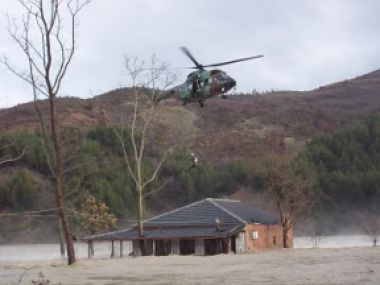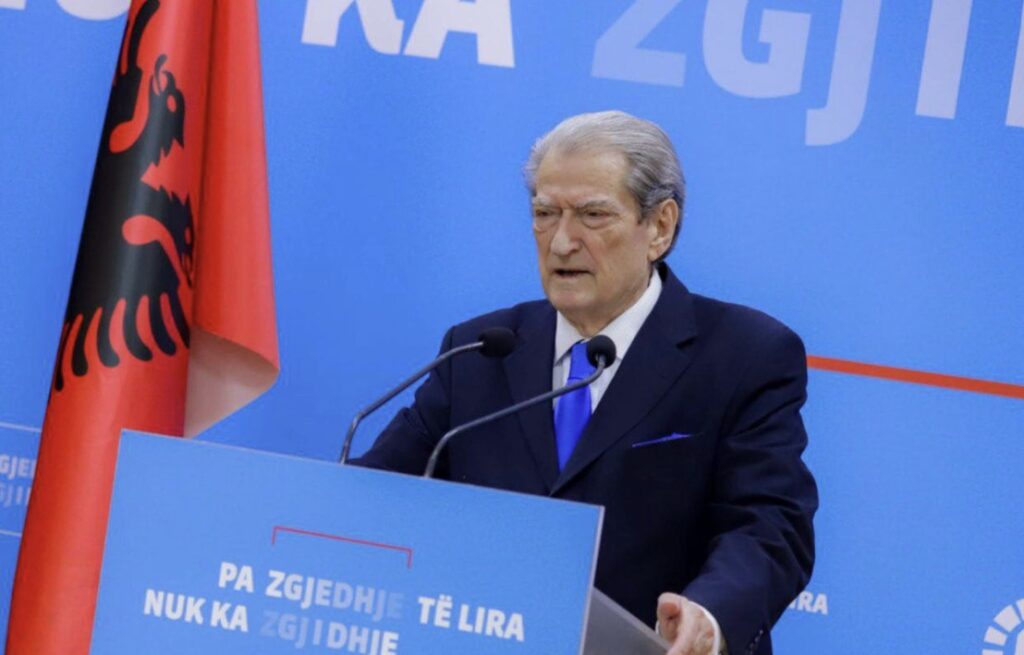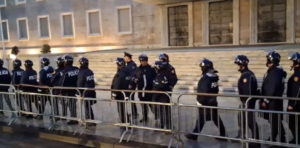Balkans, US launch emergency prep drill

The first joint military exercise by Balkan countries and the Unites States is under way in the Adriatic.
Named Joint Reaction 2015, the drill aims to strengthen co-operation between Albania, Croatia, Macedonia, Montenegro and Bosnia and Herzegovina (BiH) in the event of civil emergencies and natural disasters. It runs until July.
The exercise is the first of its kind in the 12 years since the US-Adriatic Charter (A5) was set up to address common security challenges and enhance the region's Euro-Atlantic integration.
"This will be something truly unique in the history of military and civilian preparations," US Ambassador to Albania Donald Lu said on January 26th during the kick-off ceremony in Tirana.
Speaking to military and government officials gathered for the opening meeting, Albanian Defence Minister Mimi Kodheli said: "This exercise was designed and conceived last year, during the chairmanship of the Adriatic Charter by Albania."
"The participation of all the Adriatic Charter countries in this drill is an indicator of the seriousness and willingness to exchange experience by co-operating and helping one another in emergency situations," she added.
Noting that the Balkan region in recent decades had witnessed "several natural or human disasters, such as floods, earthquakes, fires, industrial accidents, etc.," the minister said she wanted to take "preventive, rather than reactive measures."
"I thank the USA for their constant help and aid through the US European Command," Kodheli said.
The US-led exercise aims to reinforce regional co-operation. Indeed, Balkan countries often help each other during civil emergencies.
Military forces from Macedonia and Montenegro provided help when remote areas in Albania were blocked by snow. And in early February, Kosovo despatched security forces to southern Albania after rivers flooded thousands of hectares, hundreds of homes and many roads.After last year’s flooding in Serbia and BiH, the Albanian government allocated 200,000 euros in assistance. Albanian troops were also deployed to the two countries, in order to help citizens impacted by the disaster.
Military representatives from the Balkans gathered in Tirana to plan Joint Reaction 2015, assisted by US officials.
"The novelty of this drill, like that of last September's Morava 2014, is the participation of volunteer teams," Nebi Mucaj, the director of Albania's Volunteers' Centre of Civil Emergencies told SETimes. "Fifty volunteers from many professions took part in the first session of this exercise."
Along with military personnel from Adriatic Charter member states, many volunteers are expected to participate in the final testing in July, he said.
"The exchange of experience and the forging of interaction among the Balkans countries will help those countries in the future," Mucaj added.
According to the US Embassy in Tirana, the exercise's objective is to "enhance co-operation and interoperability among regional partners of the Balkan Peninsula," during civil emergencies.
"This will include refining and improving existing emergency response compacts and agreements among partner nations in order to identify and resolve obstacles or gaps that inhibit the collective capacity to respond quickly to shared threats and hazards," the statement said.
The training exercise is already paying off.
Several days after the Joint Reaction 2015 got under way, Albania and Macedonia were hit by floods. Military forces participating in the drill managed to save many civilians in danger.
An EU Civil Protection Team was deployed to Albania on February 11th to liaise with national authorities and facilitate the co-ordination of incoming assistance. According to the European Commission, several more EU member states are considering sending assistance to Albania.
Last year, teams from 11 countries participated in a full-scale exercise called IPA MNE Quake 2014, hosted by Montenegro. The exercise simulated a major earthquake in Podgorica as well as the subsequent deployment of international assistance.
More than 250 participants in the Quake 2014 exercise had the opportunity to engage in various procedures associated with an international deployment. The teamwork required by participants in the exercise was in line with the objective, which was to train and improve the co-operation between participating teams in the field.
Albania, Bosnia and Herzegovina, Montenegro, Macedonia, Kosovo, Turkey, Croatia and Slovenia sent teams to take part in the exercise. EU member states provided experts as trainers, evaluators and exercise control staff.
How will co-operative military drills contribute to disaster preparedness and security in the region? Share your thoughts in the comments section.
 KOHA JONË SONDAZH
KOHA JONË SONDAZH






















